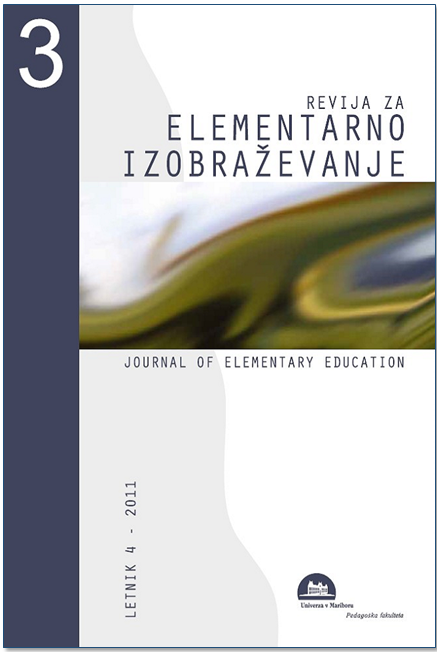Procesnodidaktični pristop pri poučevanju matematične vsebine merjenje v osnovni šoli
Abstract
The process-didactic approach to teaching the mathematical topic of “measuring” in primary schools. Measuring belongs to the science of mathemats in primary schools. In order to improve knowledge about measuring, we created a process-didactic approach for mathematical instruction and evaluated it by determining the quality of knowledge that the pupils gained. Based on our theoretical knowledge about the mental development of children, including new findings on children’s thinking and our knowledge of social cognition and learning and teaching, we prepared a process-didactic approach for teaching mathematics (measuring in Primary Schools). The process-didactic approach particularly focuses on experiential learning, reflection, the development of mental habits, setting adequate incentives on the part of teachers, cognitive conflict and socio-cognitive conflict. We carried out an empirical research on a sample of 137 pupils from the fourth grade of Slovenian primary schools. The experimental group included 67 pupils and the control group 70 pupils. The process for the experimental group was conducted according to the process-didactic approach, and the control group was conducted using the transmission approach. Using theoretically conceived tests, which were modified to function as a measuring instrument, we tested the knowledge of the pupils at different taxonomic levels by carefully selecting the contents of the measuring quantities. The evaluation the of results, regarding the quality of pupil-knowledge, shows that there are statistically significant differences in the knowledge of measuring quantities between the experimental and the control group in favour of the experimental group.
Downloads
Downloads
Published
Issue
Section
License
Copyright (c) 2011 The Journal of Elementary Education

This work is licensed under a Creative Commons Attribution-NonCommercial-NoDerivatives 4.0 International License.
